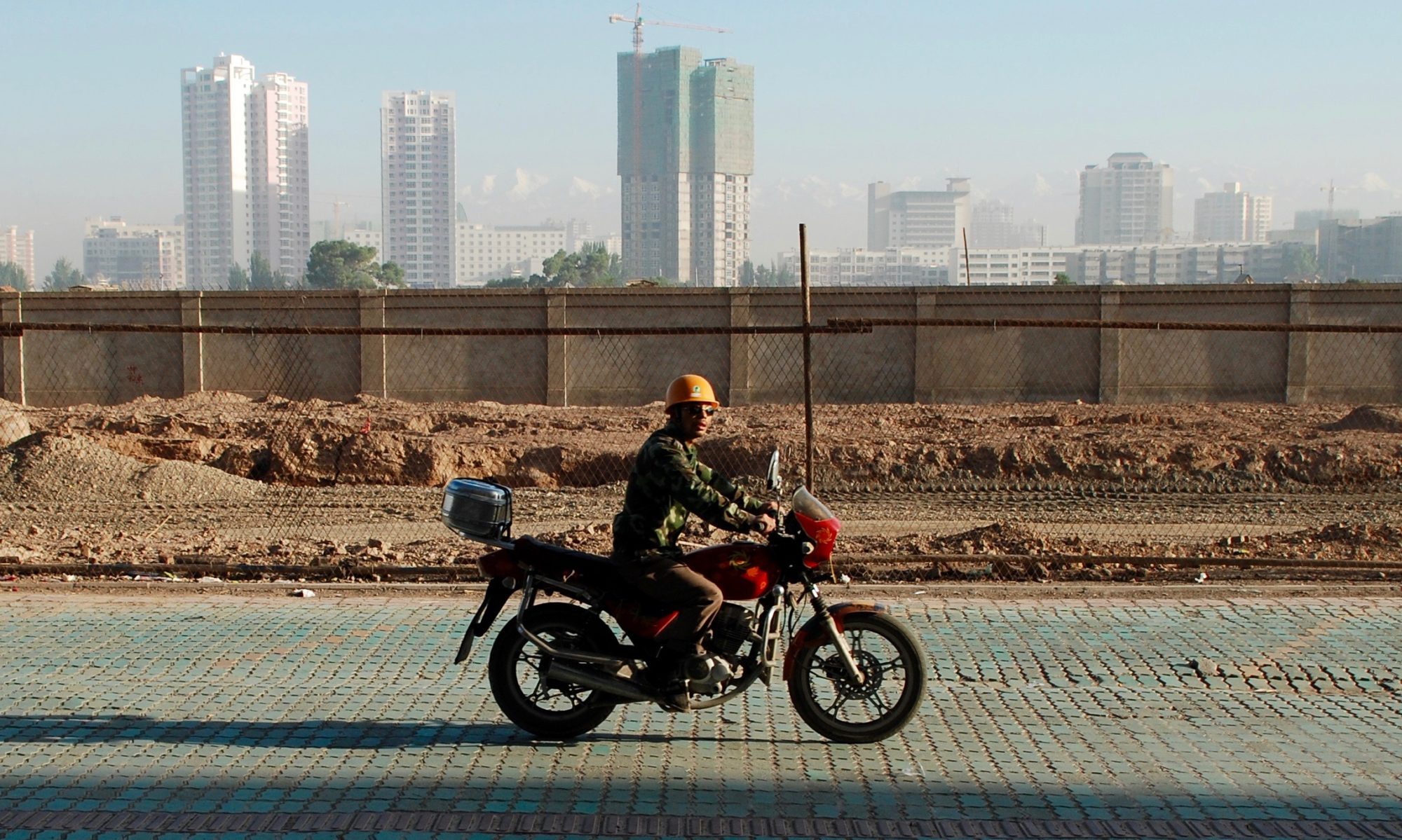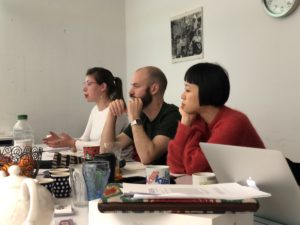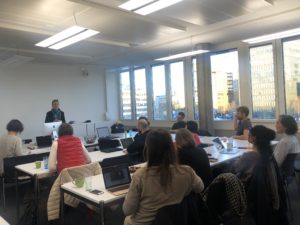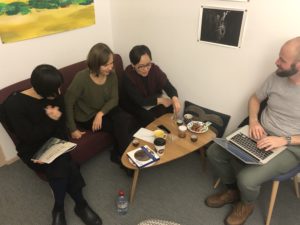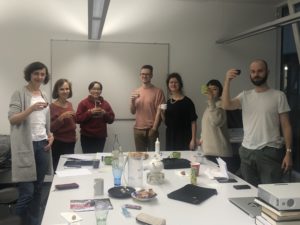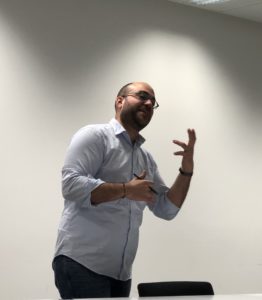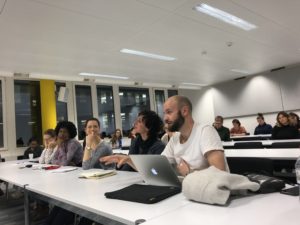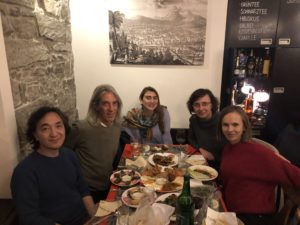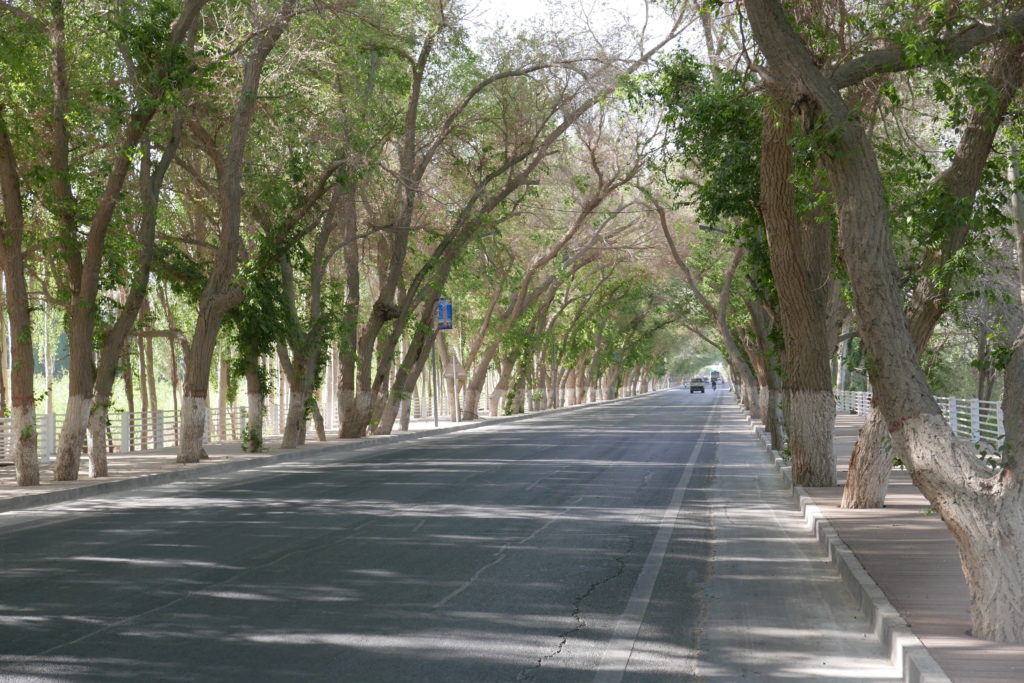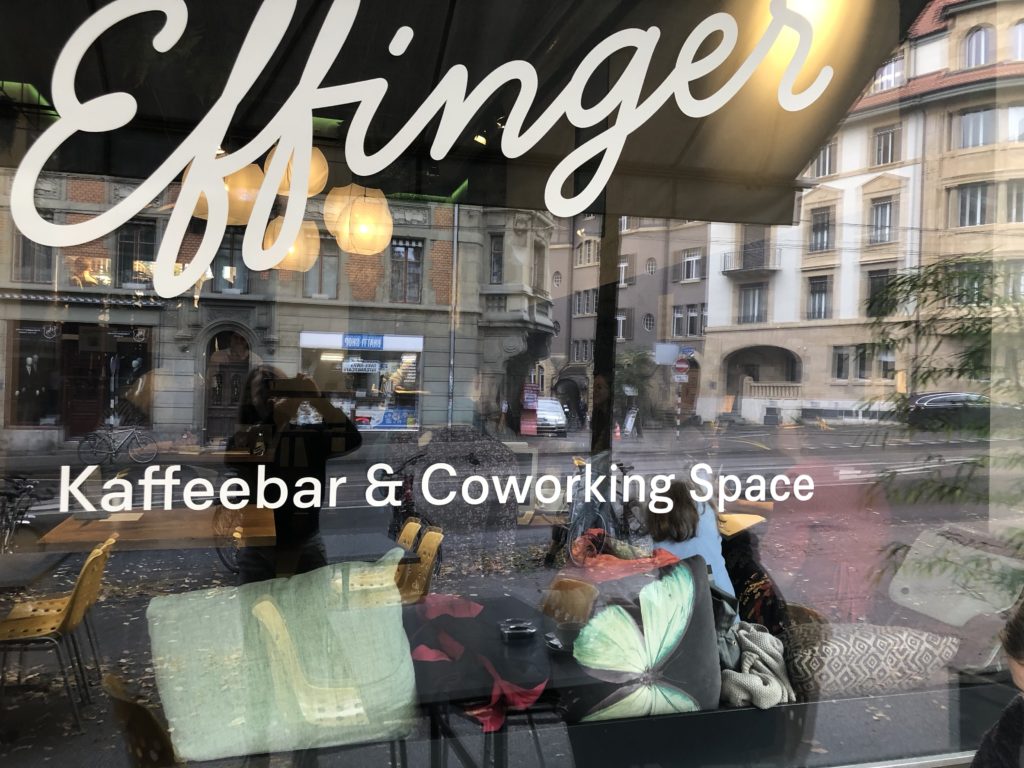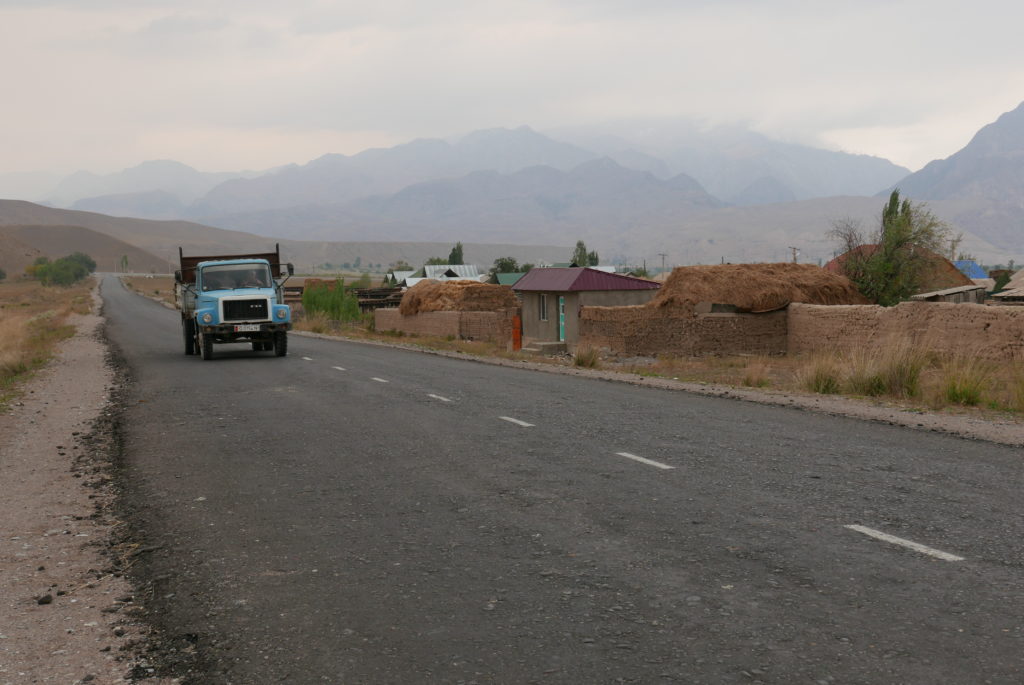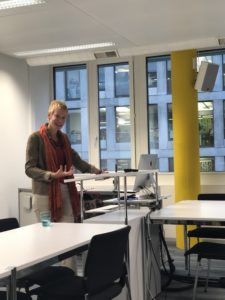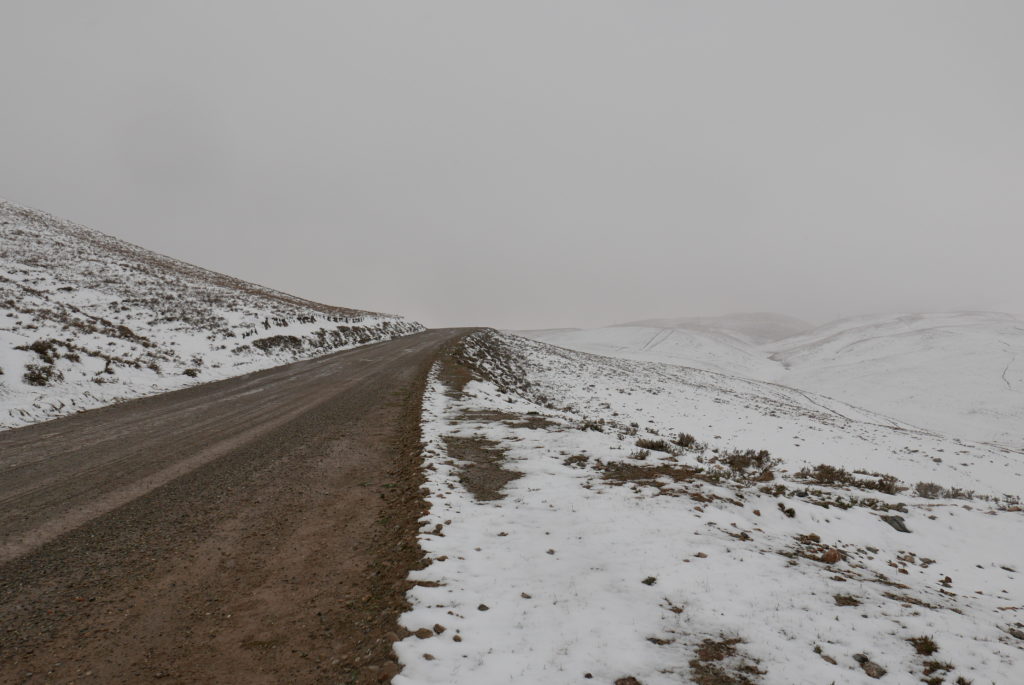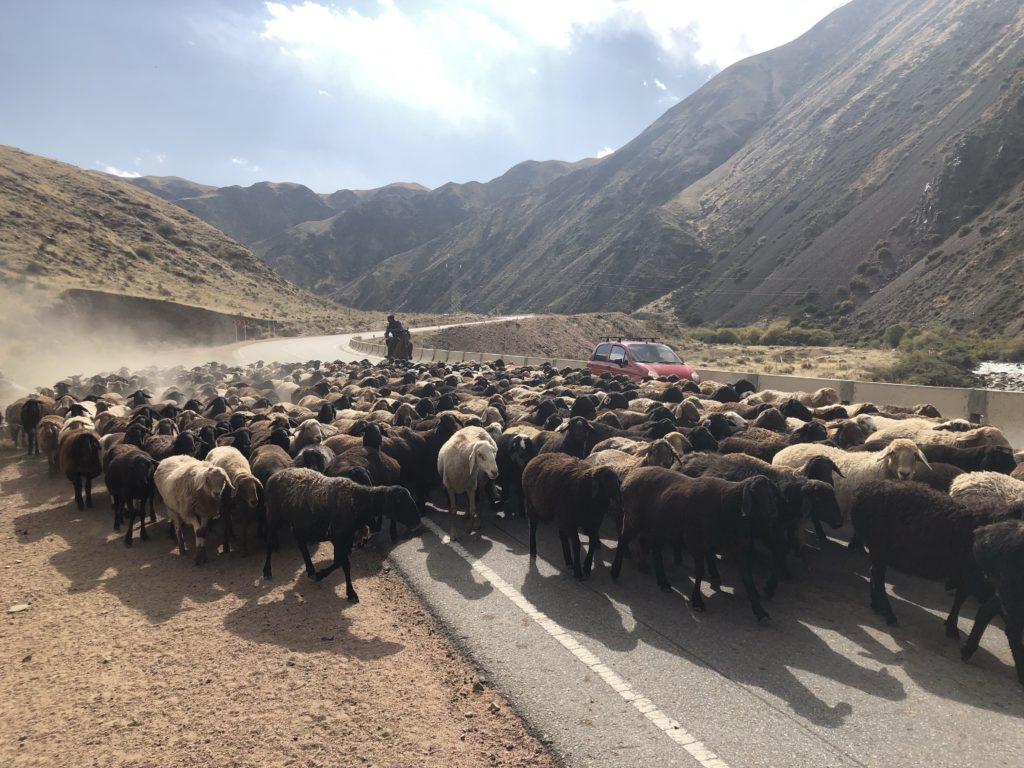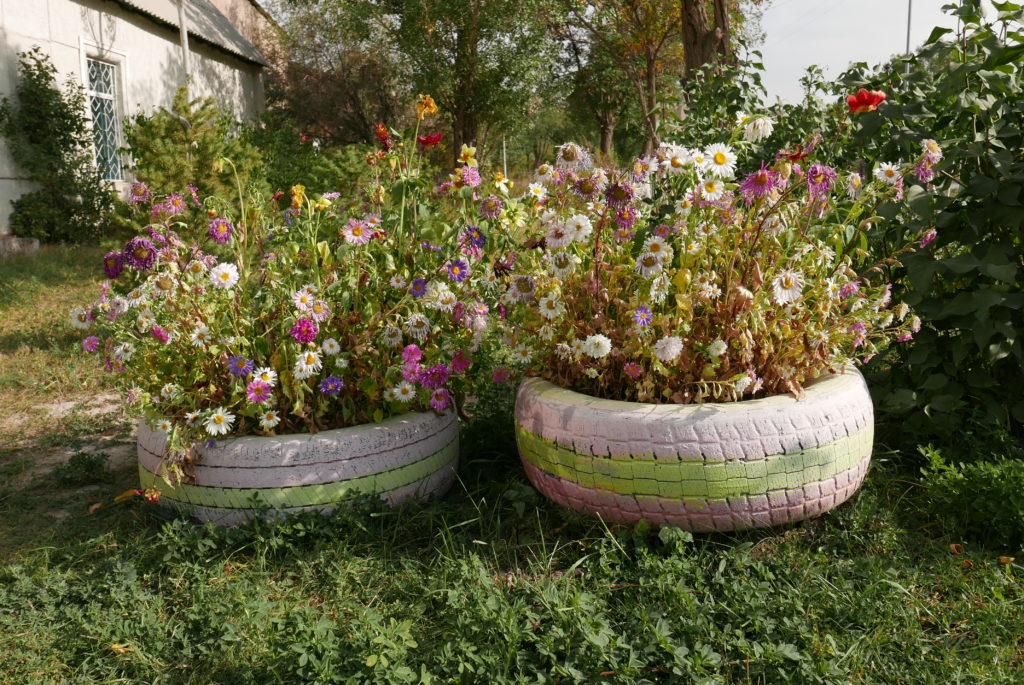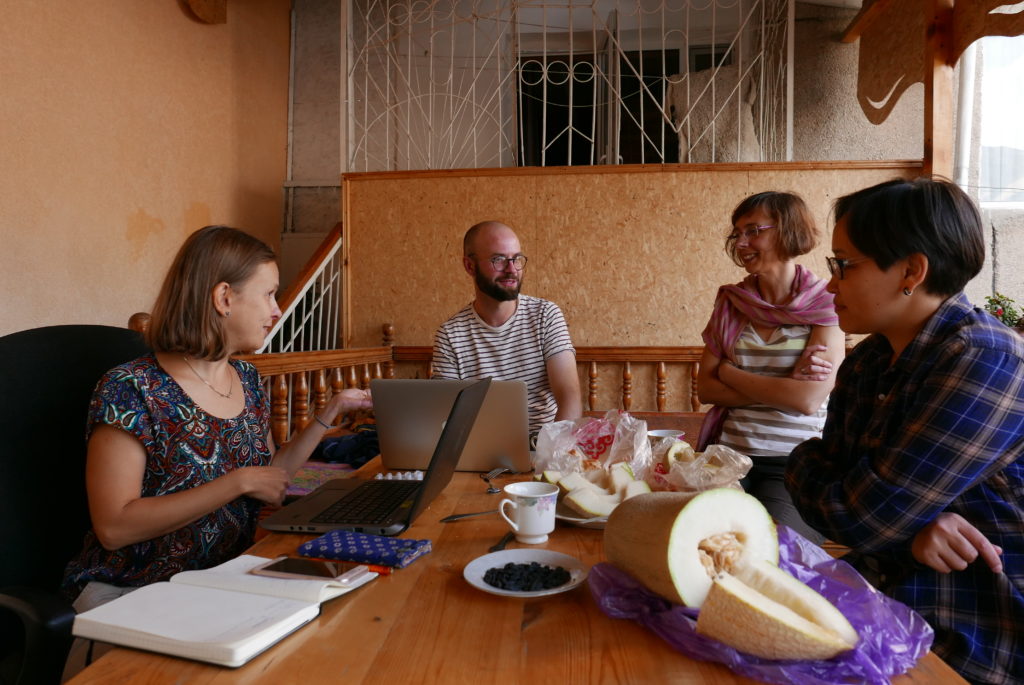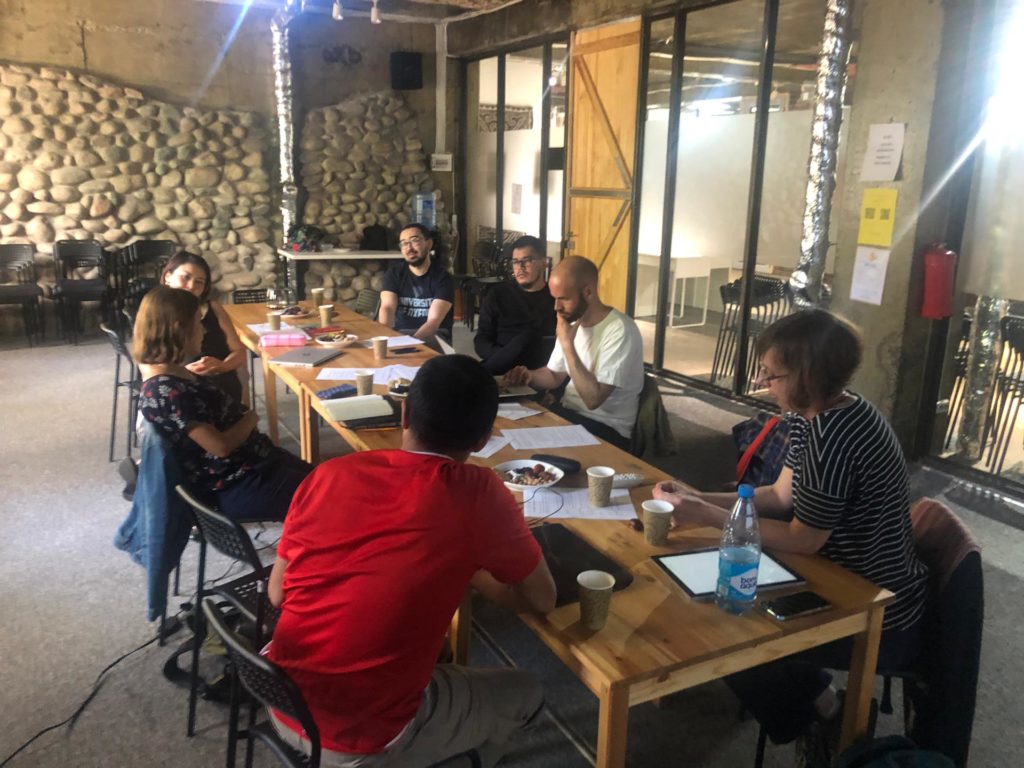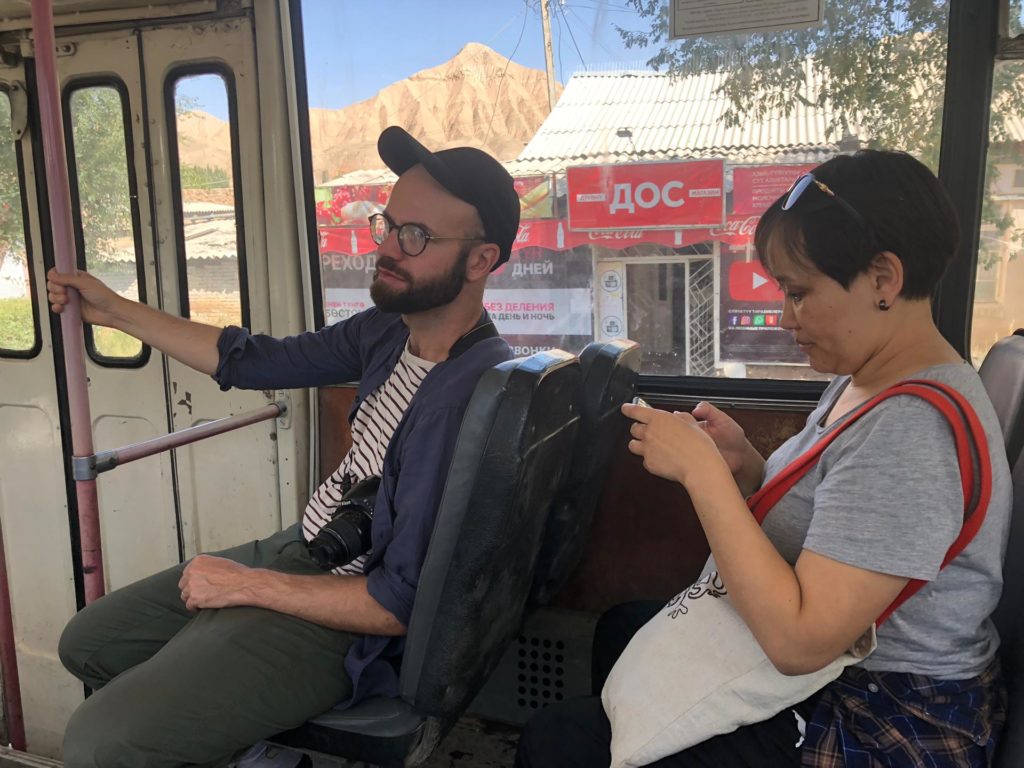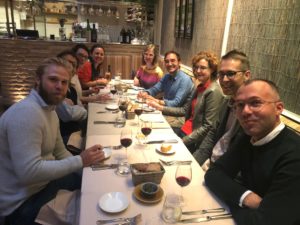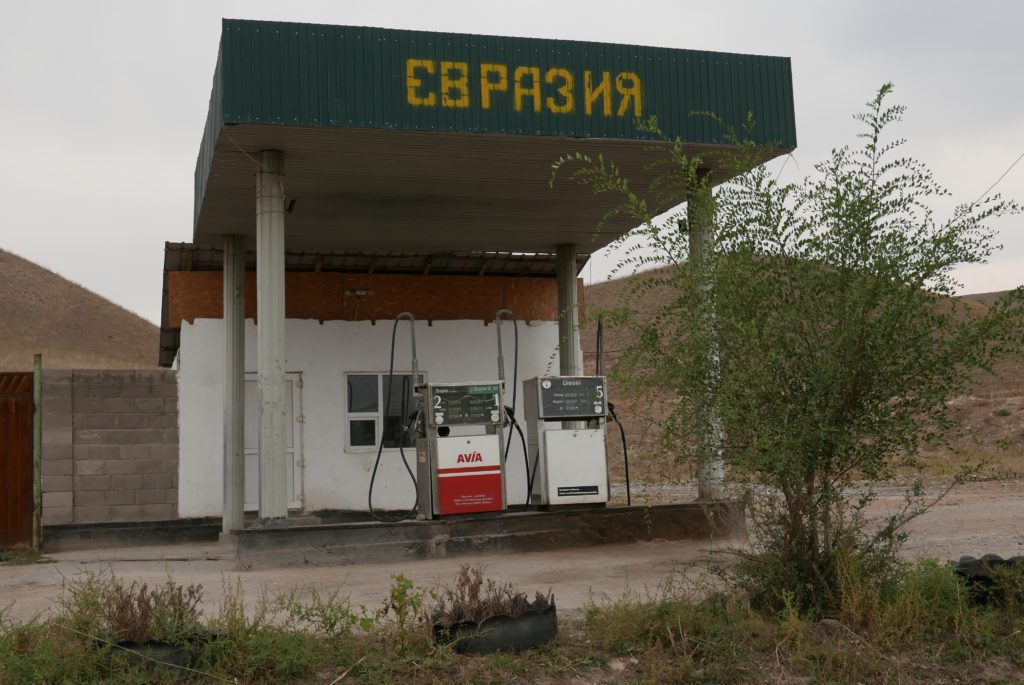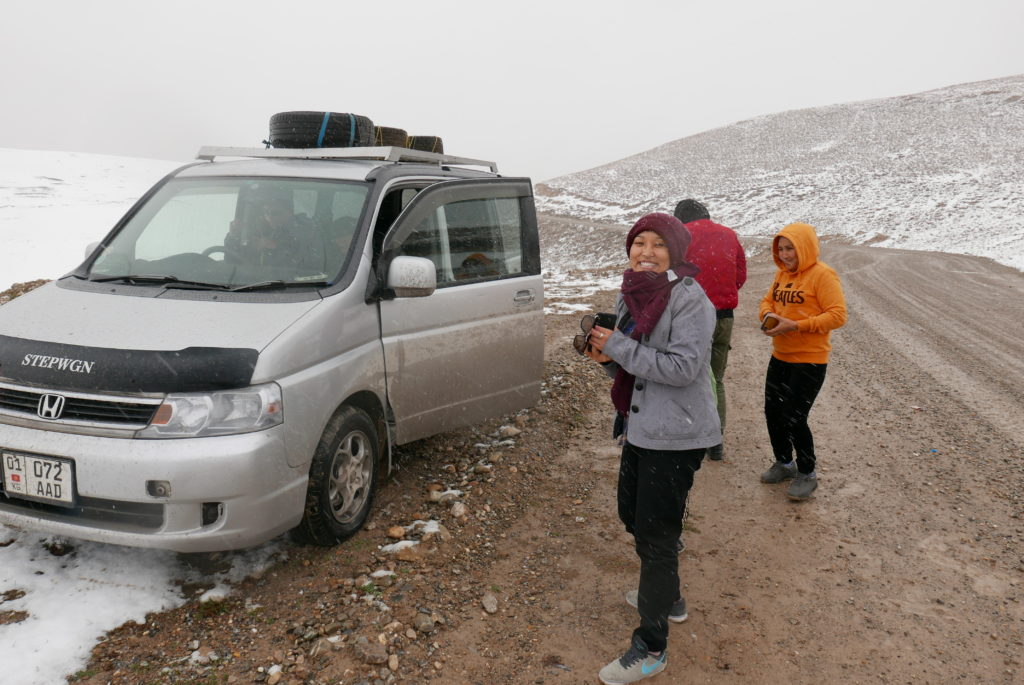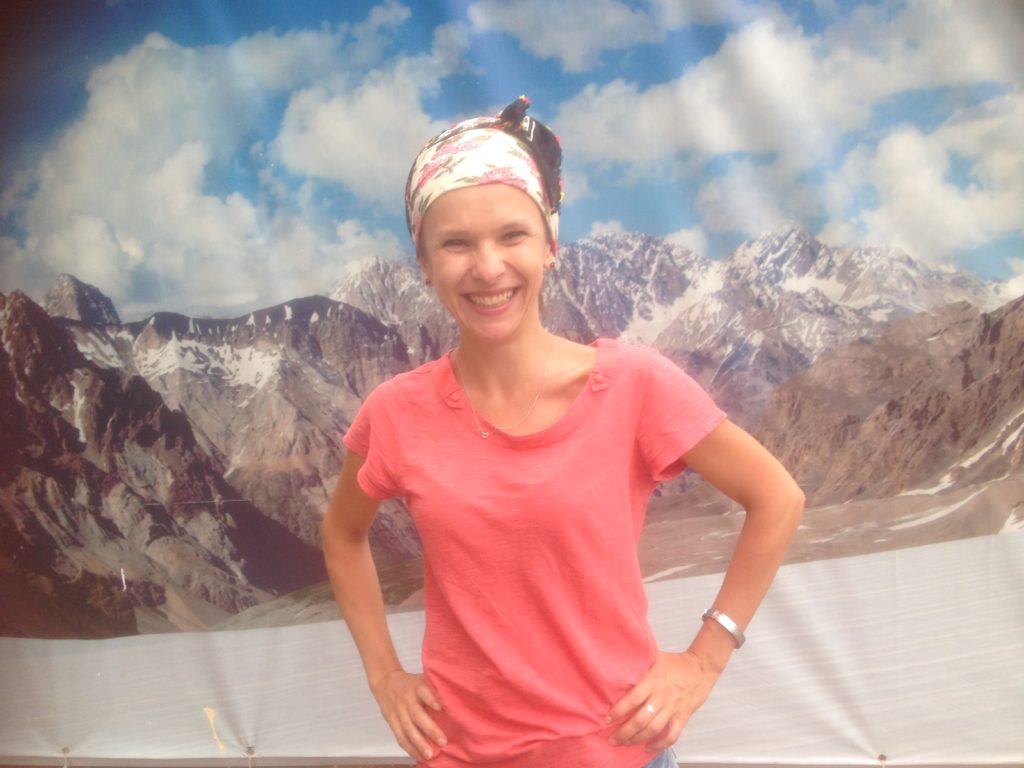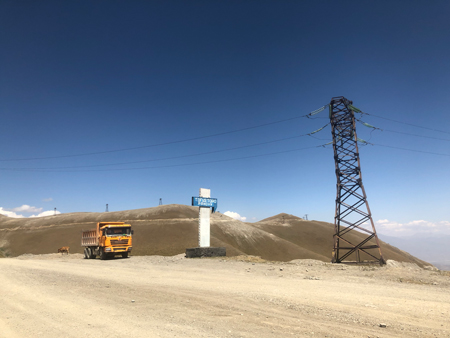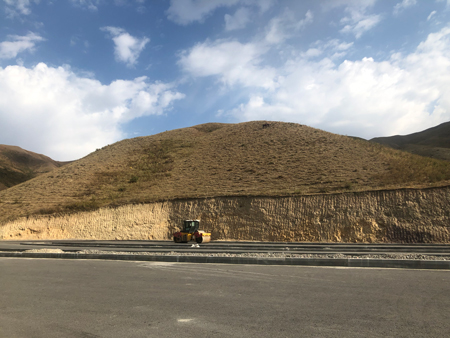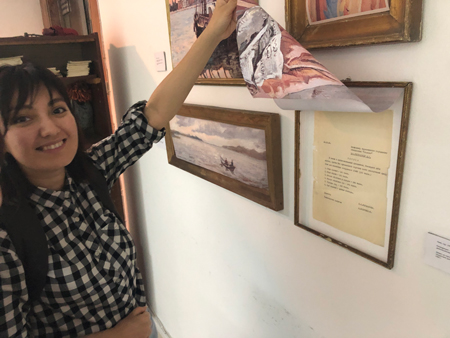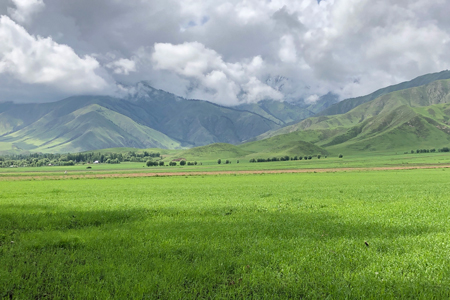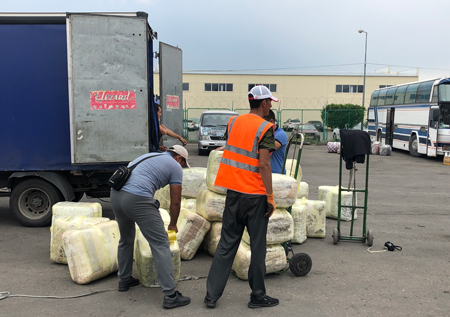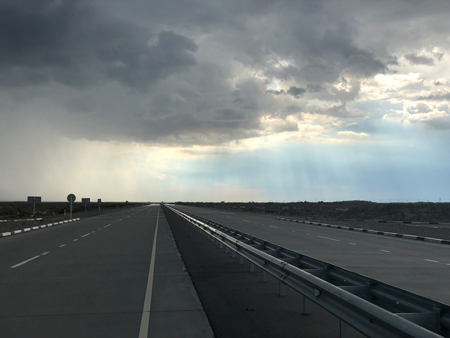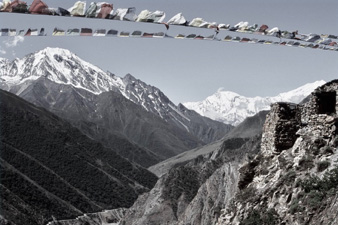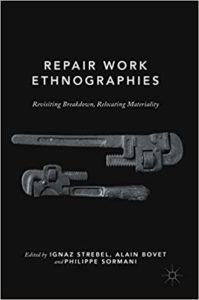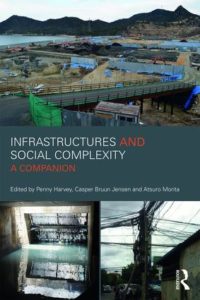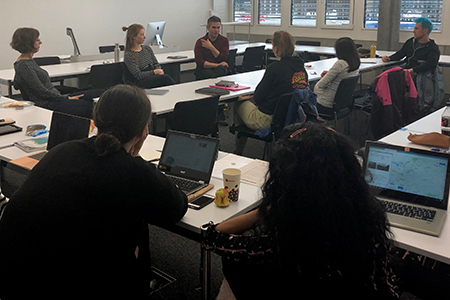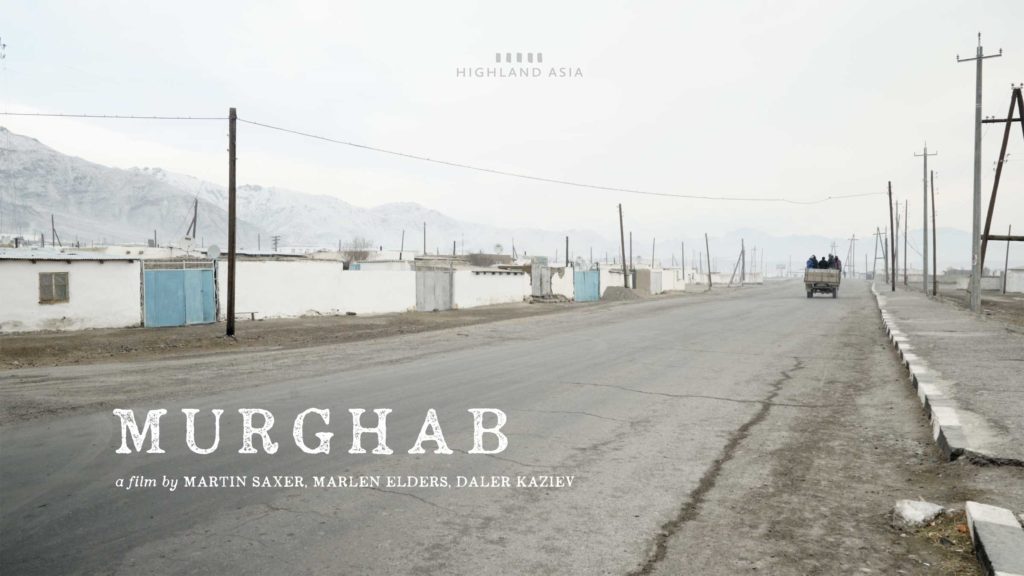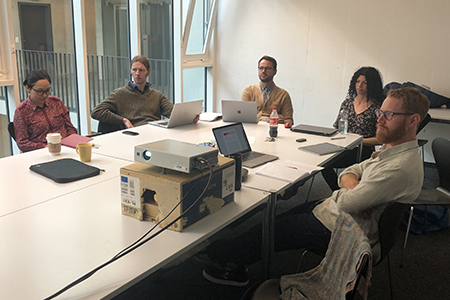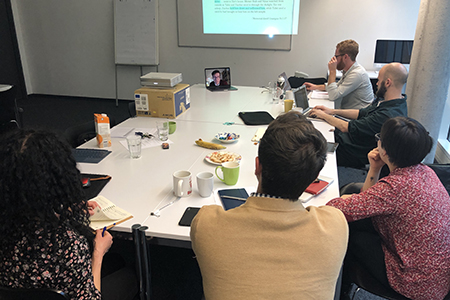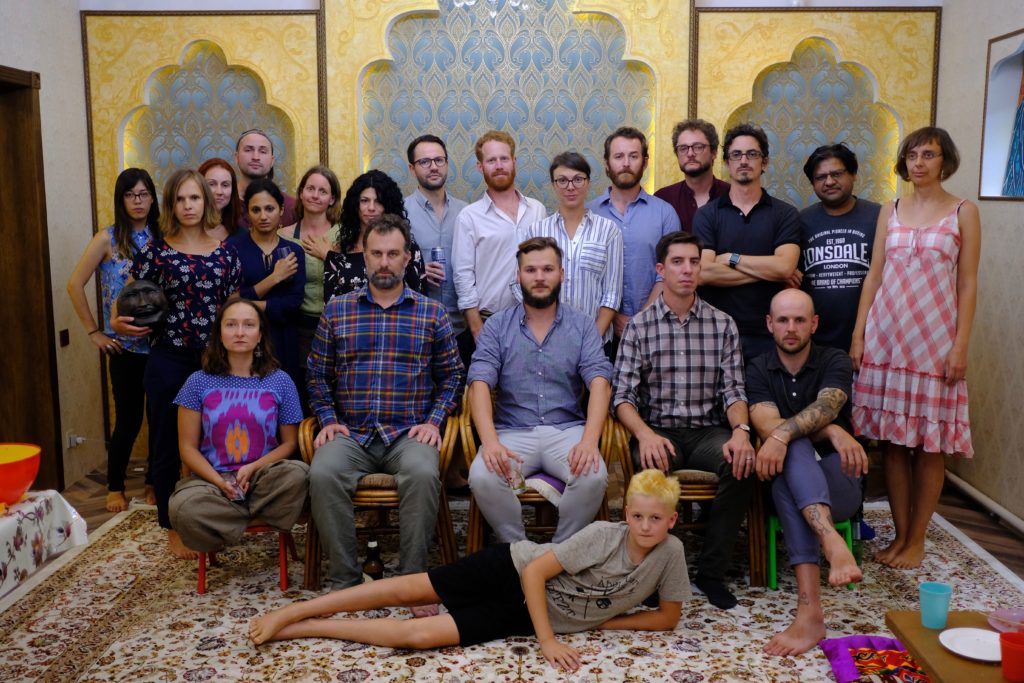12-13 DECEMBER 2019
RoadWorkShop 3.0: The cultural, political and financial life of China-built infrastructures across Asia
Department of Social Anthropology and Cultural Studies, University of Zurich
Roadwork team and guests
Address: Andreasstrasse 15, 8050 Zurich (https://roadworkasia.com/contact/)
Room no.: AND 5.03 (5th floor)
Synopsis:
The aim of this workshop hosted by the ROADWORK team at the University of Zurich is to collectively reflect on the ways in which the Chinese investment capital, labour, ideologies and geopolitical interests materialize in infrastructures currently built in Asia. Based on selected case studies, we will discuss how the Chinese investment transforms local life-worlds, which relationships it generates and which ones severs. As each infrastructure project inscribes itself onto a specific historical, discursive and ecological terrain it necessarily becomes entangled in a complex meshwork of relationships, which inadvertently transform Infrastructure’s nominal promise and produce a plethora of often unforeseeable but nonetheless critical effects. During the workshop, we will reflect on those processes in which infrastructures assume multiple meanings as they are imagined, longed for, constructed, contested, cared after, and as they decay and fall into disrepair.
The intention of the first day of RoadWorkShop 3.0 is to create a focussed time-space for the ROADWORK team and invited guests to discuss their research, reflect on it collectively and identify the themes for further collaboration. The second day of the workshop is to be entirely devoted to learning how to “tell” multimedia stories with the fantastic Gonzo Design team from St. Petersburg.
22 NOVEMBER 2019
GOBI FRAMEWORK meets ROADWORK
Agnieszka Joniak-Lüthi & Emilia Sułek
Emilia and Agnieszka from the ROADWORK team had the pleasure of hosting Ariell Ahearn, Troy Sternberg and Byambabaatar Ichinkhorloo from the GOBI FRAMEWORK project for only one but great evening in Zurich. We hope to see you all again at the Desert Conference in April!
12 NOVEMBER 2019, 6.15-7.30 pm
“‘Seidenstrasse’ – Chinas Infrastrukturprojekte in Zentralasien”
Geographische Gesellschaft Bern, Geographisches Institut, Hallerstrasse 12, 3012 Bern, Grosser Hörsaal 001 im Parterre
Agnieszka Joniak-Lüthi
Agnieszka gives a public lecture “‘Seidenstrasse’ – Chinas Infrastrukturprojekte in Zentralasien” for the Geographische Gesellschaft Bern (Geographical Society Berne).
1 NOVEMBER 2019, 9.30-11 am
“The Natures of Infrastructure” – Interdisciplinary Reading Group
Season 002 Episode 005
Effinger, Caffeebar and Coworking Space, Effingerstrasse 10 Bern
-On 1 November we convene in Bern for the inaugural meeting of the reading group “The natures of infrastructure” in the fall semester 2019. For this first meeting we read Andrea Ballestero’s “The Underground as Infrastructure? Water, Figure/Ground Reversals, and Dissolution in Sardinal” (in Infrastructure, Environment, and Life in the Anthropocene, edited by Kregg Hetherington, 17-44. Durham and London: Duke University Press, 2019) and Theodore Schatzki’s “Materiality and Social Life” (Nature and Culture 5 (2010):123-149).
The next meeting takes place on 6 December 2019 at 11 am in Zurich. If you’d like to join, please e-mail: agnieszka.joniak-luethi@uzh.ch
28 OCTOBER 2019, 6.15-7.45 pm
“Chinas Infrastrukturprojekte in Zentralasien – Kann der Gigantismus der ‘Neuen Seidenstrasse’ nachhaltig sein?”
Ostschweizerische Geographische Gesellschaft, Universität St. Gallen HSG, 01-013 (Hauptgebäude)
Agnieszka Joniak-Lüthi
Agnieszka is invited to give a lecture – “Chinas Infrastrukturprojekte in Zentralasien – Kann der Gigantismus der ‘Neuen Seidenstrasse’ nachhaltig sein?” – for the members and guests of the Ostschweizerische Geographische Gesellschaft (Geographical Society, East Swiss Section) in St Gallen.
18-19 OCTOBER 2019
“Fragile Connectivity: China’s Infrastructure-Related Activity in Eurasia and the Disciplining of the Environment”
Goethe University, Frankfurt am Main
Agnieszka Joniak-Lüthi
Agnieszka gives a talk “Fragile Connectivity: China’s Infrastructure-Related Activity in Eurasia and the Disciplining of the Environment” at the conference Languages, Cultures and Goods along the Silk Road hosted by Goethe University Frankfurt.
23-26 SEPTEMBER 2019
ROADWORK team trip in central Kyrgyzstan
ROADWORK team
After the workshop in Bishkek, the ROADWORK team including Zarina, Emilia, Thomas and Agnieszka spent a few days travelling together in central Kyrgyzstan. During the trip, we had the time to discuss our research so-far, plan the future (for example, the multi-media exhibition that we plan to launch in 2021), and brainstorm other important questions, such as how to improve our carbon footprint.
This was the first trip in a series of joint field trips planned to visit each other’s field sites. The aim of those trips is to generate an unhurried, creative space for exchange and collaboration in team, and for developing new research ideas and future projects. It definitely worked out this time! Thank you, Zarina, for hosting us in your field site!
22 SEPTEMBER 2019
RoadWorkShop 2.0: Roads and detours: Travelling through Central Asia’s pasts, presents and futures
Ololohaus co-working space, Bishkek
ROADWORK team and guests
The ROADWORK team, invited guests and collaborators gathered in Bishkek, Kyrgyzstan, for this one-day workshop to discuss the progress in our research and ways to improve knowledge transfer at home in Switzerland and in Central Asia, and to brainstorm innovative publishing formats. After this, the team travels to Zarina’s fieldwork site in the Naryn region to acquire a better understanding of her research and meet local collaborators.
9 SEPTEMBER 2019
Workshop “Academic Freedom, Academic Integrity and Open Access in the Social Sciences”, LSE, London
Agnieszka Joniak-Lüthi
Agnieszka participates in the highly inspiring workshop “Academic Freedom, Academic Integrity and Open Access in the Social Sciences” hosted by the Department of Anthropology at the London School of Economics. During the workshop, OA journal editors, representatives of OA platforms and academic presses, and academic librarians discuss the need to reform the existing ecology of academic publishing and the ways in which OA can contribute to it. A preliminary draft of an OA manifesto and a plan to create a mutual support network of OA journals are the main outcomes of the workshop. Many thanks to Andrea Pia from Anthropology LSE for organizing it and facilitating the discussions.
SEPTEMBER 2019
Fieldwork in Kyrgyzstan
Agnieszka Joniak-Lüthi and Zarina Urmanbetova
Agnieszka joined Zarina for one month to conduct fieldwork in Kyrgyzstan. We travelled along many bumpy roads on this fieldwork trip but also, occasionally, had a chance to enjoy the new asphalt of the roads built by the Chinese companies in eastern and central Kyrgyzstan over the past years. On one of the highest mountain passes on our way (3000 m), between Naryn and Kazarman, we were caught in a snow blizzard, and this in early September!
In our favourite town of Naryn we had the pleasure of meeting Prof. S. Naamatov, the President of the Naryn State University (http://nsu.kg) and gave a talk for the students of Pedagogy and History, in which we introduced our project and discussed anthropological research more generally. We are thankful for the extraordinary hospitality of the NSU faculty members, chong rahmat!
AUGUST 2019
New team member
Emilia Róża Sułek
As of 1 August, a fourth researcher has joined our core team in Zurich. We warmly welcome Emilia Róża Sułek on board and look forward to collaborating over the next three years! Emilia will focus on roads built through the Tibetan areas of Qinghai Province in China, but she will also look into somewhat ‘forgotten’ border roads such as the one linking Karakol in Kyrgyzstan with Shonzhy and further away Khorgos in Kazakhstan. As everything in China and along its borders now seems to be about construction and expansion, Emilia’s research will provide a vital counterpoint by focusing on places overlooked by the current investment boom.
JULY 2019
Fieldwork in Kyrgyzstan
Zarina Urmanbetova
In July, Zarina embarked on her long-term fieldwork in the mountainous region of Kazarman in central Kyrgyzstan. She will consider how roads matter in the lives of rural communities there. While she plans to spend some time in both Kazarman and Naryn to ‘watch’ the roads from the roadside and discuss their mundane life with the inhabitants of those towns, she will also travel extensively to acquire a bodily understanding of what it means to move around in such landscapes while depending on those few roads that exist in this part of Kyrgyzstan.
JUNE 2019
Fieldwork trip to Kyrgyzstan
Agnieszka Joniak-Lüthi and Zarina Urmanbetova
In early June 2019, Agnieszka and Zarina spent an excellent few days in Bishkek pre-organizing the September team workshop there and meeting various exciting people, such as artists from the collectives Laboratoria C and 705, and activists from NGO Urban Initiatives who, among others, lobby for the development of bicycle routes in the constantly congested city of Bishkek. We also visited a small but charming exhibition “Музей разгребает архивы”by Oksana Kapishnikova, Lilit Dabagyan and Alima Tokmergenova in the backroom of the Bishkek’s Art Museum. Displaying the archived correspondence between different museum offices and individuals employed there, Lilit gave witty insights into the everyday life of museum staff in the socialist period. One evening, rather unexpectedly, the windows of our apartment facing onto Manas Avenue allowed us a chance to watch the nightly motorcade of the Shanghai Cooperation Organisation leaders, whose gathering coincided with our stay in Bishkek. While Mr Xi definitely had the largest and fanciest escort, we both agreed that Mr Putin’s car was much more stylish. This was quite a show and the city of Bishkek got properly dressed up for the occasion.
Having found a great venue for our workshop and having completed the list of participants, we left Bishkek and moved to the region of Issyk-kul to learn more about the collections of the Karakol City Archive. This was a very promising visit and we hope to return in September to study documents relating to the connections between this area and the region of Xinjiang in China after the 1917 Revolution. Next on the programme, Agnieszka wanted to check out the cross-border road between the Issyk-kul region and Khorgos, a connection that – as we heard – is becoming increasingly important and has often been mentioned as the most direct and promising route linking this region of Kyrgyzstan to the duty-free bazaars on the Chinese border. Against our expectations (or rather Agnieszka’s expectations), the asphalt ended long before the road even began winding its way up into the high-mountain pastures populated by thousands of grazing horses. On this most direct and highly anticipated international connection, definitely not much was happening. We spotted no more than ten cars in course of the whole day, most of them belonging to herding families. Still, as the photograph below makes clear, the village of Karkyra at the border and the adjacent region are ready to engage with the promising futures waiting around the corner.
SUMMER 2019
Silk Road Summer School, Almaty-Zharkent-Khorgos, Kazakhstan
Agnieszka Joniak-Lüthi
Agnieszka gave two lectures – one of them in the town of Zharkent and one in the Khorgos Special Economic Zone – for the participants of the Silk Road Summer School organized by the History Department of the University of Zurich. The lectures, “The New Silk Road and the Fluid Landscapes of Sino-Inner Asian Borderlands” and “Khorgos Special Economic Zone: A Sino-Kazakh Experiment in Neoliberal Economy”, were a part of a series that focused on Central Asia as – historically and today again – a pivotal region at the Eurasian crossroads linking East and South Asia with the Mediterranean.
During the trip to Kazakhstan, participants were able to visit the International Centre for Boundary Cooperation and the Dry Port at Khorgos – both integral elements of the Special Economic Zone at the Sino-Kazakh border. It was a pleasure to learn from our highly competent guides at both locations, but it was also really interesting to see how participants of the summer school struggled to make sense of the contrast between the grand images of the New Silk Road with which they arrived in the region, and the much less spectacular reality on the ground: the sweaty struggle of the shuttle traders with their cargo at the border, the newly built but deserted highways, and people living in and on the ruins of earlier centrally orchestrated development campaigns. It was great to discuss our research with the students of the summer school, who all contributed different perspectives on China’s current expansion informed by their work in business, law, medicine, journalism, art curatorship and more. A heartfelt thank you to Peter Finke for managing the group of nearly fifty individuals in his relaxed and good humoured way.

23 MAY 2019, 3-5 pm
“The Natures of Infrastructure” – Interdisciplinary Reading Group
Season 001 Episode 004
Progr, Zentrum für Kulturproduktion, Waisenhausplatz 30, Bern
On 23 May 2019 we will met again in one of the ateliers in the Progr Gymnasium Bern for the fourth meeting of the interdisciplinary reading group “The natures of infrastructure” devoted to discussing the recent publications in the field of infrastructure studies. For this meeting we are going to read the Introduction, Chapter 1 (Zone) and Chapter 6 (Extrastatecraft) from Keller Easterling’s book Extrastatecraft: The Power of Infrastructure Space (Verso, 2014).
If you’d like to join, please email us at agnieszka.joniak-luethi@uzh.ch and ignaz.strebel@unil.ch
13 MAY 2019, 3–4.30 pm
Hildegard Diemberger: “A Transhimalyan Route in Time: Connectivities, Cultural Heritage and Change along the Kyirong-Rasuwa Corridor”
Ethnographic Museum, Pelikanstrasse 40, Zurich
We warmly invite you to a talk by Hildegard Diemberger (University of Cambridge).
Synopsis: Sometimes considered a branch of the Silkroads, the Kyirong-Rasuwa corridor is one of the historically most significant transhimalayan routes. Trade, religious connections, diplomacy, military operations and kinship relations shaped its history in time. Recently re-opened in form of a tarmac road it has become the main link between Lhasa in Tibet and Kathmandu in Nepal with a far-reaching impact on the surrounding areas. Building on twenty-five years of ethnographic and historical research, this presentation looks at ancient sites and recent transformations along this ancient route as it turned to a modern international road.
2 MAY 2019
Book launch of Repair Work Ethnographies: Revisiting Breakdown, Relocating Materiality edited by Ignaz Strebel, Alain Bovet and Philippe Sormani
University of Lausanne
Agnieszka Joniak-Lüthi
Agnieszka was invited to give an intervention on the newly published volume Repair Work Ethnographies(2019, Palgrave Macmillan) edited by Ignaz Strebel, Alain Bovet and Philippe Sormani. The book is a collection of ten praxiological studies of repair work on such different objects as mobile phones in Uganda, vintage trains in Belgium, public bicycles in Paris and fragile old books in the Austrian National Library. It is a fascinating read!
17 APRIL 2019, 3-5 pm
“The Natures of Infrastructure” – Interdisciplinary Reading Group
Season 001 Episode 003
Progr, Zentrum für Kulturproduktion, Waisenhausplatz 30, Bern
On 17 April we met in one of the ateliers in the Progr Zentrum für Kulturproduktion, Bern for the third meeting of our interdisciplinary reading group “The natures of infrastructure” devoted to discussing the recent publications in the field of infrastructure studies.
During the meeting we discussed Chapter 2 (“Fixed Flows: Undersea Cables as Media Infratsructure” by Nicole Starosielski) and Chapter 4 (“Deep Time of Media Infrastructure” by Shannon Mattern) from the book Signal Traffic: Critical Studies of Media Infrastructures edited by Lisa Parks and Nicole Starosielski (University of Illinois Press, 2015).

11-14 APRIL 2019
Highland Asia Workshop
Bad Gastein, Austria
Zarina Urmanbetova and Agnieszka Joniak-Lüthi
Zarina, with the paper “The Alternative South-North Road in Kyrgyzstan,” and Agnieszka, with the paper “Following pathways, producing knowledge” participated in the workshop concluding the main phase of the highly-successful ERC project Highland Asia (http://www.highlandasia.net) based at LMU Munich. These were three great days, thank you Martin, Aditi, Marlen, Matthäus and Alessandro for organizing this productive event!
20 MARCH 2019, 10-12 am
“The Natures of Infrastructure” – Interdisciplinary Reading Group
Season 001 episode 002
On 20 March we re-convened in Bern, half-way between Zurich and Lausanne, for the second meeting of the interdisciplinary reading group “The natures of infrastructure” devoted to discussing the recent publications in the field of infrastructure studies. The aim of the monthly group is to establish a regular meeting platform for social sciences and humanities scholars conducting research on infrastructure at various Swiss universities. Join us!
During the meeting we discussed Chapter 3 («Surveing the future perfect» by Kregg Hetheringon) and Chapter 6 («River basin: The development of the scientific concept…» by Atsuro Morita) from the book Infrastructures and Social Complexity edited by Penny Harvey, Casper Bruun Jensen and Atsuro Morita (Routledge 2017).
18 MARCH 2019
Screening of the Rough Cut of the Film «Murghab» by Martin Saxer and Marlen Elders
Department of Social Anthropology and Cultural Studies, University of Zurich
On 18 March 2019 we hosted two film makers, Martin Saxer and Marlen Elders from LMU Munich. Martin and Marlen showed the rough cut of their beautiful film “Murghab” and discussed the making of the film with Department’s students and guests.
The film was officially selected for Dok.fest Munich. Congratulations Martin, Marlen and Daler!
Film synopsis: A generation ago, Murghab was well taken care of. As the highest town of the former Soviet Union at 3600 metres above sea level and close to the sensitive borders with Afghanistan and China, the town enjoyed ample provisions from Moscow brought in via the Pamir Highway. It featured electricity around the clock, an airport with regular flights, a movie theatre, and a hospital with central heating. Since then, Murghab and its people have weathered several storms and many of the Soviet hallmarks are crumbling away. Yet, life goes on and, with wit and improvisational skills, the ruins of Socialism afford a plethora of new but precarious ways to make do.
The film provides a window into contemporary life in Murghab. It offers glimpses into people’s daily routines, inviting the audience on a journey to the Pamirs. It follows a group of men harvesting shrubs on the windswept high-altitude plateau, a nurse keeping regional health statistics, a passionate teacher inspiring a sense of history and purpose in her class, and a welder building stoves from the scraps of Soviet modernity. A winter film of hardship, work and hope.
26-28 FEBRUARY 2019
RoadWorkShop 1.0
Department of Social Anthropology and Cultural Studies, University of Zurich
The nearly-complete ROADWORK team convened in Zurich for the first time to discuss our research so far and plan the coming years. Thanks everyone for coming and joining us via Skype. RoadWorkShop 2.0 is planned for early December 2019.
26 FEBRUARY 2019, 4.15-6 pm
Richard Irvine: “Deep time is where we live: on the intersection of geological and biographical temporality”
Department of Social Anthropology and Cultural Studies, University of Zurich
We warmly invite you to a talk by Richard Irvine (University of St Andrews) on “Deep time is where we live: on the intersection of geological and biographical temporality”.
Venue: Department of Social Anthropology, Andreasstrasse 15, Zurich, room AND 4.06 (4thfloor)
Abstract: What is the span of a human life in relation to deep time – that is, in relation to the timespan of the geological processes which shape and reshape the terrain under our feet? In this talk, I argue that the life cycle is never readable on its own; it exists in relationship with other biographies. Human stories of life, of production and reproduction, are not only situated within wider genealogies which expand the life history in time through kinship, but on an active, constitutive relationship with the resources upon which we depend, whose formation stretches over time-spans which appear to dwarf that of a human life and yet are necessarily present – either recognised or unrecognised – in our own economic and social activity.
I will explore this argument through material from recent fieldwork in Orkney, an archipelago off the north coast of Scotland. The action of the sea is constantly reshaping and reducing the islands here, eroding the glacial till and the underlying sedimentary rock. A continuous gnawing, but with moments of drama that thrust deep time into the full glare of consciousness. From this vantage point, I will attempt trace out a biography within the materials of the coastline: sandstone, uranium, and concrete.

20 FEBRUARY 2019
Inaugural meeting of the reading group “The natures of infrastructure”
Today we convened in Bern, half-way between Zurich and Lausanne, for the inaugural meeting of the interdisciplinary reading group “The natures of infrastructure” devoted to discussing the recent publications in the field of infrastructure studies. The aim of the monthly group is to establish a meeting platform for social sciences and humanities scholars conducting research on infrastructure at various Swiss universities. For the first meeting we read two chapters from the book Infrastructures and Social Complexity edited by Penny Harvey, Casper Bruun Jensen and Atsuro Morita (Routledge 2017).
The next meeting takes place on 20 March 2019 in Bern. If you’d like to join, please email us: agnieszka.joniak-luethi@uzh.ch and ignaz.strebel@unil.ch

16 FEBRUARY 2019
Spuren im Sand – Tracks in the sand
Verena La Mela and Fabian Geiger are going tell the stories and show breathtaking photograps from their 7-month roadtrip in a camper van in 2014 on which they embarked after graduating from the university. In total, Verena and Fabian travelled 29500 kilometers through eighteen countries starting in Germany, via south-eastern Europe, Turkey, Iran, Turkmenistan, Uzbekistan, Tajikistan, Kyrgyzstan, Kazakhstan, Xinjiang, Pakistan and India. The trip was one important reason why Verena decided to do a PhD with the focus on Central Asia and how she got interested in the anthropology of roads! The blog from this trip can be viewed here.
23 JANUARY 2019
Lecture „Fragile connectivity: The New Silk Road and the fluid landscapes of Sino-Inner Asian borderlands”
Lecture series Borders and Border Spaces, Geographisch-Ethnographische Gesellschaft Zürich
Agnieszka Joniak-Lüthi
In 2013, President Xi Jinping formulated China’s vision of Eurasian connectivity: The Silk Road Economic Belt. The strategy envisages the construction of infrastructure networks that will engulf the Eurasian continent and form an interconnected space of exchange. Since the plan was announced, the Economic Belt has attracted much academic and media attention on the infrastructure being constructed and its future potentialities. At the same time, questions about the sustainability of this infrastructure in a dynamic Sino-Inner Asian borderland with a highly «fluid» terrain and socio-political geography has been virtually absent from the debate.
The inevitable decay, maintenance and social ambiguity surrounding transport infrastructure lack the appeal associated with new construction projects; yet discussing them is crucial in the context of the Silk Road Economic Belt. It is important to bring this mega-project back down «to the ground» and into more mundane terms. By zooming in on a single «desert road» in northwest China designated as a crucial conduit in the westward arc of the Economic Belt, this article draws attention to the social complexity and ecological vulnerability of transport infrastructure in the Sino-Inner Asian borderlands. At one scale, this infrastructure is part of China’s vision of globalisation, at another scale, however, it is firmly embedded in local contexts. By pushing the political, ecological and material complexity of roads in northwest China to the centre of our inquiry, the article offers a radically new perspective on the current construction boom and its sustainability.
17-19 JANUARY 2019
Mapping Asia Workshop
Ludwig Maximilian University, Munich
Agnieszka Joniak-Lüthi
At this amazingly productive workshop organized by Galen Murton, currently a Marie Curie Fellow at the Department of Social and Cultural Anthropology at LMU Munich Agnieszka gave an intervention on “How to draw ethnographic maps?” and discussed the challenges of drawing “thick” maps of roads that would go beyond their usual cartographic representations as smooth lines. How to cartographically represent the social un-smoothness of roads and the ways in which exclusions, precariousness and uncertainty remain inherent elements of mobility along roads? It was really instructive to discuss these questions with human geographers, social anthropologists and GIS specialists who convened in Munich for this interdisciplinary workshop. Thank you so much, Galen, for facilitating this event!

15 DECEMBER 2018
Roundtable “Chinese politics today: Ambivalent Ambitions”
Symposium China behind the Media, University of Oslo
Agnieszka Joniak-Lüthi
In Western media China increasingly comes across as an ever more authoritarian state. At the same time, the country is taking the responsibility to help address climate change and global poverty. We hear that China is a global economic miracle, as well as a potential threat to democracy. In this publicly open seminar, some of the world’s foremost experts on Chinese society, politics and environment discuss what China looks like behind the media images.
Organized in three panels, scholars will debate short- and long-term developments in the political system, which global ambitions the Communist Party is cultivating, the human rights situation in Xinjiang, feminist activism, and how the government and the public are responding to environmental degradation and climate change.
The seminar is organized by the research project “Airborne”at the University of Oslo (UiO).
22-23 NOVEMBER 2018
Conference panel “Beyond Engineering – Anthropological Knowledge on Infrastructure”
Annual Meeting of the Swiss Anthropological Association, University of Zurich
Agnieszka Joniak-Lüthi and Madlen Kobi (Academy of Architecture, Mendrisio)
Infrastructures such as roads, buildings, railways, heating systems or power lines are complex social-material-technological formations. Anthropological research into the meanings and workings of the built environment has demonstrated that materials, technologies and built structures are inherently social and dynamic. Moreover, though knowledge is often framed as something invisible—existing in discourses, ideas and cognition—the anthropology of infrastructure makes clear that it also is manifested in and thus has to be studied through materials such as concrete, steel, tarmac or sand and their use in the construction process. This is evident in anthropological studies that engage with the role of infrastructure as a built and building part of society. For example, houses can embody remittances entangled in migration histories or serve as real estate investment. Mobile phone-enabled connectivity expands networks of social relations. Mining of materials for infrastructure construction is embedded in the complex political ecology that stretches far beyond the actual construction site. Roads are platforms for projecting political agendas, expectations, fears, and claims to power. Ethnographic research on infrastructure meaningfully contributes to infrastructure studies by exploring infrastructure’s mundane social life and highlighting its inherent dynamism. Social anthropology thus balances out the focus on engineering, technological advancement and construction manifest in glossy images from opening ceremonies by contributing knowledge on the social life of infrastructure, the often neglected impact of time, the processes of social-material decay, and the complex work of maintenance.
Hence, anthropological knowledge contributes to understanding infrastructure beyond its normative function and rather as dynamically-evolvingsocial relations between materials, humans, discourses, knowledge, environment, the state, capital and more, relations that stretch across place and time.Social anthropologists have demonstrated an explicit interest in combining different scales of knowledge in their research, e.g. the scale of political decision-making, the scale of engineering knowledge, the knowledge of technologies and materials, the knowledge of the mundane lives of the workers, and the knowledge of power relations which manifest in infrastructure, among others. Anthropological research on infrastructure has thus also substantially, though often implicitly, contributed to destabilizing the notion of an anthropological ‘site’ or ‘field’, and has also sought to reflect it in its methodology.
Speakers:
Moritz F. Fürst and Ignaz Strebel, University of Lausanne
Why our cities don’t fall apart: Ethnographies of repair work
Dalila Ghodbane, Università della Svizzera Italiana
Heat and dust. The ethnography of a house in historic Cairo
Luisa Piart, University of Fribourg
Istanbul’s (post)-industrial infrastructures: An urban exploration
Seraina Hürlemann, University of Lausanne
More than transport: Contesting ethnic culture on the ancient tea horse road in Lashi Hai (Yunnan, China)
Matthäus Rest, Max Planck Institut für Menschheitsgeschichte, Jena
Do it for the culture. The infrastructures of milk preservation
Agnieszka Joniak-Lüthi, University of Zurich
Input presentation: The social life of infrastructure – existing and emerging debates

10-12 OCTOBER 2018
Roundtable “Where are we? (in Central Asian Anthropology)”
Conference “Ideas and Practices: Exploring Social and Economic Transformation in Central Asia”, Max Planck Institute for Social Anthropology, Halle
Agnieszka Joniak-Lüthi
Infrastructures of change
Since 2000, when China launched its Open up the West campaign, and at an even greater pace since 2013 when the One Belt One Road initiative (OBOR) was initiated, the Xinjiang Uyghur Autonomous Region in northwest China has been subjected to rapid social-material transformations. Huge amounts of funding have since been invested in road and railway construction. This significantly changed the spatial organization of the region and had all sorts of social, cultural, and economic effects which further complicated the already tense political situation in the region. While the focus of Chinese and international media is on the spectacular opening ceremonies of new roads, in my talk I instead explore what happens after the construction teams pack up, ceremonies end and the newly built infrastructures begin their complex social existence. I propose to theorize roads as complex social-material structures which concurrently exist on a number of spatial and temporal scales. In Xinjiang, the new roads inscribe themselves onto a highly charged political terrain and overstrained ecosystems. This complicates their social effects and deserves a nuanced analysis to understand their ambiguous ramifications.
13-15 AUGUST 2018
Conference panel “Fragile Infrastructures, Secure Nation: On the Making of Ruins in Highland Borderlands”
6th Meeting of the Asian Borderlands Research Network, Bishkek
Agnieszka Joniak-Lüthi and Alessandro Rippa (LMU Munich)
In the highlands of Asia, construction of roads, railways and airports in previously inaccessible and peripheral territories represent a major element of nation building. The Pamir Highway, for instance, was fundamental to Soviet governance in Central Asia. A similar argument can be made for the roads and railway connecting eastern China and the Tibet Autonomous Region. In Kashmir, roads and airports were for the most part the results of strategic considerations, and the role of the army in their construction, use and maintenance remains crucial. Today the strategic motivations for infrastructure construction are increasingly downplayed by the discourse of transnational connectivity in trade and development which transportation infrastructures, reportedly, automatically generate. Often brought under the umbrella of so-called “economic corridors” such massive infrastructures are, we are told by the proponents of such projects, means for commercial and cultural exchanges, not devices of securitisation.
On the ground, such promises meet a harsh reality, in which infrastructures are conspicuous for their fragility and on-going disintegration. We argue that this intrinsic fragility of infrastructures, as well as the central role of maintenance should be more explicitly addressed, both empirically and conceptually. In this panel, we discuss the implications of such fragility in border regions, where infrastructures have for decades served as the main means of nation-building for border communities.
Conceptually, we contend that infrastructures should be analysed from within their social, material and political environments and entanglements. Construction is from the beginning accompanied by a parallel process of ruination, and maintenance often becomes the main way of engagement for the lowland state. Infrastructural fragility, it could be argued, both reflects the contentiousness of any nation-making process, while also providing the state with an opportunity to secure its presence across contested borderland spaces. A challenge, as well as an opportunity.
Papers in this panel explored this contentious nexus, and discussed the following themes:
– the ontological fragility of infrastructures and how it affects the maintenance of state materiality in the highlands of Asia;
– ethnography-based case studies of the politics of maintenance;
– what happens when different layers of ruins, often the result of different state interventions, co-exist in a particular space;
– how promises of peace, modernity and wealth are inscribed onto infrastructures and navigated vis-à-vis mundane experiences of disruption and decay.
Speakers:
Till Mostowlansky, Graduate Institute of International and Development Studies, Geneva
The Longest Construction: Building and Shattering the Borderlands of the Pamir-Karakoram
Mia Bennett, The University of Hong Kong
Between Permafrost and a Hard Place: Loss and Livelihoods Amidst Post-Soviet Infrastructural Decline
Mustafa Khan, SOAS, University of London
China Coal Roads in Pakistan and the Contradictions of Modernity
Björn Reichhardt, Humboldt-Universität zu Berlin and Max Planck Institute for the Science of Human History
Boon and Bane: Fencing off Livelihoods in Ulaanbaatar’s Ger Districts
Discussant: Agnieszka Joniak-Lüthi
After a series of fantastic conference panels during the day (“Borderland Commodities: In and out of the Legal Shadows”; “Liquid Undercurrents: Infrastructure and the Border Lives of Fuel, Water, and Cash”; “Resurgent Frontiers: Mobility, Regulation and Infrastructure in South Asian Borderlands”; “Hyperbuilding Highland Asia: Ethnographic Engagements with Emerging Infrastructural (Geo)Politics”; “Cross-Border Social Interactions and Tensions in Central Asia”; “Ocean Grabbing and Ocean Re-claiming in Asian Maritime Borderlands” and “Local Responses to Infrastructural Degradation”)our colleagues from anthropology and geography departments across Europe, the US and Asia convened in the evening at the house of our Kyrgyz host Bakytbek for a seriousnetworking event.
Dear Bakytbek and family, we are very grateful for your hospitality, thank you so much for facilitating our gathering.
AUGUST 2018
Research Trip to Kazakhstan and Kyrgyzstan
Verena La Mela, Zarina Urmanbetova and Agnieszka Joniak-Lüthi
The research trip to Kazakhstan and Kyrgyzstan in August marked the official beginning of the ROADWORK project. The aim of this three-week road-trip was to get in touch with potential research partners and to visit the field-sites in southeast Kazakhstan and southern Kyrgyzstan where Zarina and Verena will conduct their research in the coming years.
